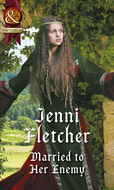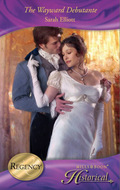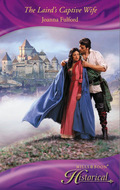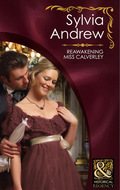Das Buch kann nicht als Datei heruntergeladen werden, kann aber in unserer App oder online auf der Website gelesen werden.
Buch lesen: "Wicked Wager"
Praise for Julia Justiss
A MOST UNCONVENTIONAL MATCH
‘Justiss captures the true essence of the Regency period in this sweet, gentle romance. The characters come to life with all the proper mannerisms and dialogue as they waltz around each other in a “most unconventional” courtship.’
—RT Book Reviews
ROGUE’S LADY
‘With characters you care about, clever banter, a roguish hero and a captivating heroine, Justiss has written a charming and sensual love story.’
—RT Book Reviews
THE UNTAMED HEIRESS
‘Justiss rivals Georgette Heyer…by creating a riveting young woman of character and good humour…[The] complexity and depth to this historical romance, and unexpected plot twists and layers also increase the reader’s enjoyment.’
—Booklist
THE COURTESAN
‘With its intelligent, compelling characters, this is a very well-written, emotional and intensely charged read.’
—RT Book Reviews
MY LADY’S HONOUR
‘Julia Justiss has a knack for conveying emotional intensity and longing.’
—All About Romance
MY LADY’S TRUST
‘With this exceptional Regency-era romance, Justiss adds another fine feather to her writing cap.’
—Publishers Weekly
Spurring his horse to a gallop, he reached Jenna before her groom even noticed his mistress had fallen.
Quickly he secured his horse and limped as fast as he could to where she lay, still ominously unmoving.
Jenna moved at last. Eyes still shut, she murmured and nestled against him, as if snuggling into his warmth. Or as if, slowly rousing from sleep, she were seeking her lover.
His body stirred at the thought and, despite his worry, he had to grin. Often as he’d dreamed of having Jenna Montague in his arms again, he’d never envisioned it happening quite like this…
Wicked Wager
Julia Justiss

About the Author
JULIA JUSTISS wrote her first plot ideas for a Nancy Drew novel in the back of her third-grade notebook, and has been writing ever since. After such journalistic adventures as publishing poetry and editing an American Embassy newsletter she returned to her first love: writing fiction. Her Regency historical novels have been winners or finalists in the Romance Writers of America’s Golden Heart™, RT Book Reviews magazine’s Best First Historical, Golden Quill, National Readers’ Choice and Daphne Du Maurier contests. She lives with her husband, three children and two dogs in rural east Texas, where she also teaches high school French. For current news and contests, please visit her website at www.juliajustiss.com
Novels by the same author:
THE WEDDING GAMBLE
THE PROPER WIFE
MY LADY’S TRUST
MY LADY’S PLEASURE
MY LADY’S HONOUR
A SCANDALOUS PROPOSAL
SEDUCTIVE STRANGER
THE COURTESAN
THE THREE GIFTS (part of A Regency Lords & Ladies Christmas anthology)
THE UNTAMED HEIRESS
ROGUE’S LADY
CHRISTMAS WEDDING WISH (part of Regency Candlelit Christmas anthology)
THE SMUGGLER AND THE SOCIETY BRIDE (part of Silk & Scandal mini-series)
A MOST UNCONVENTIONAL MATCH
MILLS & BOON
Before you start reading, why not sign up?
Thank you for downloading this Mills & Boon book. If you want to hear about exclusive discounts, special offers and competitions, sign up to our email newsletter today!
Or simply visit
Mills & Boon emails are completely free to receive and you can unsubscribe at any time via the link in any email we send you.
Chapter One
AS LORD ANTHONY NELTHORPE, formerly captain in the 1st Royal Dragoons, stepped across the threshold of his London townhouse one foggy fall morning, a giggling, mostly naked woman burst onto the upper landing and fled down the stairs. A balding, half-naked man followed, eyes focused owlishly on his hand clutching the rail as he maneuvered the steps and then lurched off after her.
“So, Carstairs,” Tony remarked to the retainer in threadbare livery who had opened the front portal for him, “I see my father is engaged in his usual pursuits.”
“Yes, my lord,” the man replied, his age-spotted hand trembling as he struggled to close the heavy door. Tony turned to assist him, remembering only at the last minute that this wasn’t the army anymore, where a man in battle helped another man, regardless of rank. Carstairs would be as embarrassed as he was shocked, should his master’s son and heir lower himself to assist the butler.
Curling the fingers he’d extended toward the servant into a fist, Tony turned away. “I expect the earl will be too…preoccupied to receive me this morning. At a more opportune moment, would you tell him I’ve arrived—and have some beef and ale sent to the library now, if you please?”
The butler bowed. “At once. On behalf of the staff, may I say ‘welcome home,’ Master Tony.”
“Thank you, Carstairs.” At his nod, the old man shuffled down the hall in the direction of the servants’ stairs.
Mouth setting in a thin line, Tony watched him retreat, noting the hall carpet was as worn as the butler’s uniform and dirty besides. Shifting his weight painfully, he limped toward the library, noticing as he went the layer of dust that veiled the few pieces of furniture and the ornate arches, which in his youth had sheltered exquisite Chinese vases set on French marquetry tables. Long gone now, of course.
Evidently Tony’s esteemed father, the Earl of Hunsdon, still preferred to squander whatever income could be wrung from his heavily mortgaged estates on liquor and the company of lovelies such as the one who’d recently tripped down the stairs, rather than keep his house in good order.
Welcome home, indeed.
Gritting his teeth, he made himself continue the rest of the way down the hall, sweat popping out on his brow at the effort. The surgeons who’d put the pieces of his shattered knee back together had predicted he’d never walk again. He still wasn’t very good at it, he admitted as he reached the library door and clung to the handle, panting. Thank God riding was easier.
A high-pitched squeal interrupted him, followed by a rapid pad of footsteps. The bawd ran into view, pausing with a shocked “oh, la!” when she spied him.
With matted hair dyed an improbable red that matched the smeared paint upon her lips and nipples, powder caked in the wrinkles of her face and beneath her sagging breasts, she was not an enticing sight, even had he been in better shape to appreciate the appeal of a mostly naked female. But then, with his ugly limp and post-hospital pallor, he was none too appealing himself.
Still, he’d seen his father unclothed, and Tony was twenty-five years younger besides. Not wishing to give the tart an opportunity to change targets, he ducked into the library, slammed the door and limped toward the desk.
With a groan, he collapsed in the chair. Well, Tony, despite the carnage of war, you made it home, he thought. No longer a captain, but once again Viscount Nelthorpe—whoever the hell that is.
Certainly not the self-absorbed, vain aristocrat so confident of his position in the world who’d left this house one drink-hazed night three years ago. Having lost more gaming than he could borrow to repay, he’d staggered home to ask his father for a loan. When that gentleman consigned him to the devil, with the threat of debtor’s prison hanging over him, he’d had little choice but to leave his debts of honor unpaid and flee England, taking with him only the clothes on his back, his horses, and a commission in Wellington’s Fighting Fifth Infantry—won in a card game.
Nothing like privation, terror, hunger and pain to give one a fresh perspective, he observed wryly.
Though he wasn’t sure yet what he was going to do with that hard-won wisdom. Now that his eyes had adjusted to the gloom within the curtain-shrouded room, he noted the library was as dusty and unkempt as the hallway. Lord knows, he thought, puckering his brow in distaste, there was work enough to be done here.
A knock interrupted his reflections, followed by the entry of Carstairs. The butler carried a tray from which emanated such appealing odors that, for the moment, Tony forgot everything except that he’d not eaten since last night. Fool that he was, he’d thought to reach London before nightfall despite the slower pace necessitated by his recovering knee. Darkness having overtaken him on the road, he’d been forced to engage a room for the night and had not had cash enough to pay for his accommodations, dinner and breakfast, too.
Grimacing, Carstairs balanced the tray while he pulled a handkerchief from his pocket and hastily wiped clean a spot on the desktop. “Begging your pardon for the conditions, Master Tony, but last winter his lordship let go all the servants but me, Betsy and one parlor maid—a good girl, but she can’t manage all alone. Betsy’s as fine a cook as ever, though, so you needn’t be worrying about your dinner. She sends along her welcome, too.”
As he spoke, Carstairs removed the cover on the dish, sending Tony a drool-inducing waft of beef-scented air. “Tell Betsy that, after what the army ate—or more often, didn’t eat—in the Peninsula, she could give me no finer welcome home than this! As for the estate—I know you have done your best. I mean to do something about…conditions.” Though heaven knew what, as he was nearly as pockets-to-let now as the night he’d run away.
But instead of returning the skeptical lift of brow a Nelthorpe’s promise of improvement should merit, the old man’s face brightened. “We know if anyone can turn it around, you will, Master Tony. After all, you be one of the Heroes of Waterloo!” After giving him a deep bow, as if he deserved the highest respect, the butler left.
Hero? he thought as he gazed after Carstairs with a self-mocking curl of his lip. If you only knew.
But surviving such a battle made one practical as well as philosophic. No sense letting the bleak memories spoil what appeared to be an excellent breakfast and some fine English ale. He’d wait until after he tucked into it to begin pondering his future.
Somehow he hadn’t thought beyond the driving imperative to return home. After years of giving and taking orders in the army, followed by the day-by-day struggle to recover from his wounds, he found it disconcerting rather than relaxing to admit he had no plans whatever.
He must talk with Papa and determine just how grim their financial condition was—though judging from what he’d already seen, that looked to be grim indeed. Given the scene he’d happened upon as he arrived, any such conference would have to wait until this afternoon at the earliest.
With the ease of long practice, he submerged the sense of hurt that, despite having sent a letter informing his sire of his imminent arrival, his father hadn’t bothered to remain sober long enough to personally greet the son he’d not seen in three years. So, what to do next?
He could write to tell Mama that he was back, but as she’d not corresponded with him in all the months he’d been away, he wasn’t sure at which of Papa’s remaining estates the countess currently resided. Probably the one with the handsomest footmen, he thought sardonically.
He’d ride to the park, he decided. The exercise of the knee muscles required for riding was beneficial, the doctors had told him, and paradoxically seemed to ease rather than aggravate the aching, as long as he didn’t keep at it too long. And though this late morning hour was still unfashionably early for anyone in the ton to be about, he might spy an acquaintance with whom to share a drink at White’s—where, he presumed, he was still a member.
His spirits lifted as soon as he’d climbed awkwardly into the saddle. The army must have changed him more than he knew if an excursion into the lingering smoke haze of a chilly London morning had more appeal than remaining in a cozy, if admittedly dusty, library with a snug fire.
Pax, the gray gelding given him by a grateful fellow officer whose life he’d saved at Quatre Bras, was proving an easy, even-gaited mount, though he lacked the spirit most cavalry officers preferred in a mount. But if God had any mercy to spare for the battered carcass of one Anthony Nelthorpe, he thought with a shudder, he’d never again have need of a good cavalry horse.
As he rode down Upper Brook Street toward Hyde Park, a tepid sun began to break through the remaining haze. A happy omen for his return, perhaps.
Then he saw her—a slender lady mounted on a showy chestnut mare. Having watched her on innumerable marches from Badajoz through Toulouse, he recognized her immediately, though he was half a street away.
For a moment he halted, admiring as always her erect carriage and perfect form. Even on a sidesaddle, she rode as one with her horse, as if she naturally belonged there. Which, having spent the greater part of her life in the saddle, he supposed Jenna Montague did. Lovely Jenna—unattainable, unapproachable, his first colonel’s daughter and the woman he’d once tried to coerce into marriage.
Except for when she found him on the field after Waterloo, Tony hadn’t seen Jenna, now Lady Fairchild, up close since their ill-fated encounter at the abandoned monastery outside Badajoz. His fingers reached automatically to touch his throat, where beneath his cravat, he still bore the scar from the knife wound she’d inflicted while successfully resisting his misguided attempt at seduction.
The mark she’d left on his mind and heart had proved just as indelible.
As always, though he felt immediately drawn to her, he hesitated. Then he remembered that the man she chose to marry instead no longer stood watch, his steely gaze promising dire retribution if Tony dared to so much as approach his wife. Colonel Garrett Fairchild had died of wounds sustained at Mont St. Jean.
However, given that he’d nearly ruined her reputation, tricking her into meeting him without a chaperone at that deserted rendezvous, should he try to hail her, he’d probably receive at best a cold nod, at worst, the cut direct.
Which would it be? he wondered. Before he could decide whether or not to try his luck, she pulled up her horse before a handsome townhouse and handed over the reins to a waiting servant. No chance now of reaching her before she slipped inside—once more beyond his reach.
He watched until she’d ascended the stairs and disappeared into the entry. How differently might his life have turned out, had he secured her hand nearly three years ago? Her hand, the enjoyment of the curves concealed beneath her pelisse—and the rich dowry that would have allowed him to pay off his debts, abandon his nascent army career and return to comfortable decadence in London?
Instead he’d spent the following two years sleeping on the ground or in vermin-infested billets and foraging for provisions, his mind and heart branded with the searing iron of a dozen successive battles. Nightmarish vistas of smoke-obscured chaos, the smell of hot gun barrels and fresh blood, the screams of dying men and horses amid the din of rifle and artillery, haunted him still.
But over those years he’d also witnessed countless episodes of selflessness and self-sacrifice. He no longer believed, as his father had preached, that honor was a concept for schoolboys and fools. And he himself was no doubt a better man for having met the challenge of that hard, bitter trial.
Better, perhaps, but not of course the equal of Colonel Garrett Fairchild and the other truly courageous heroes who had perished in the woods and fields of Waterloo. In a supreme stroke of irony, two of the lost were the men to whom he’d owed gaming debts, their deaths effectively canceling Tony’s obligations and freeing him to return to London without fear of being clapped into prison.
He kicked his horse into action and rode up to the gate. “Whose house is this?” he called to a young man in livery loitering at the foot of the steps.
“Viscount Fairchild’s, m’lord,” the boy answered.
So she was staying at the home of her late husband’s family, Tony thought. Perhaps, even though she was likely to greet him with scorn, he ought to call on her. Garrett Fairchild had been a dedicated officer and an exemplary solder, and Tony did regret his loss. Besides, by the time he’d been lucid enough to carry on a conversation, he had been moved to a hospital, so he had never had the opportunity to thank Jenna for her care after the battle. Given the debt he owed her for that, he should deliver his thanks in person, even if she took that opportunity to administer a well-deserved snub.
Yes, he decided, urging his horse back to a trot, he would definitely pay a call on Jenna Montague.
Chapter Two
ACCEPTING THE GROOM’S HAND, Jenna Montague Fairchild stepped down from the sidesaddle and looked with a sigh at Fairchild House. Riding in London’s parks, though better than remaining at home, barely allowed for a decent gallop.
After three days in the metropolis, she was already wishing herself back in Brussels. Or Lisbon or Madras or anywhere near some vast open plain where she might ride for hours and escape the emptiness that echoed through her rooms, in her shattered heart, with Garrett gone.
Four months had dulled the agony of losing him to a barely tolerable pain. Unconsciously her hand slipped down to rest on the swell of her abdomen. Were it not for the child she carried, she wasn’t sure she would have been able to force herself to return to the native land in which she’d lived exactly two months of her life, to reside as custom demanded in the house of her husband’s relations whom she’d met only once, and briefly.
But with most of the casualties from June’s battles either dead of their wounds or gone home to finish recovering, Jenna could no longer use the excuse of nursing duties to justify lingering in Brussels. With the future of Garrett’s heir to consider, she’d been forced to leave the bittersweet comfort of the rooms they’d shared, the bed in which their child had been conceived, the simple grave in the rose-garlanded cemetery on the hill beyond Waterloo where she’d had his remains laid to rest.
Hoping Aunt Hetty had slept late today, so she might avoid the unpleasantness of dealing with the woman until afternoon, Jenna made herself walk up the steps.
The querulous feminine tones that reached her ears as soon as Manson opened the door told her that hope was not likely to be realized. Wishing Garrett had never invited his widowed aunt to move into Fairchild House, she put a finger to her lips to forestall the butler’s greeting.
Silently she handed over her wrap. Perhaps she could creep by the front parlor and reach her room undetected.
But a board creaked as she crossed the landing and a moment later Aunt Hetty called out, “Jenna, is that you? Come in! We are planning Garrett’s memorial service.”
Swallowing her irritation, she bowed to the inevitable and reluctantly entered the parlor. From his seat beside Aunt Hetty, Lane Fairchild, one of the two cousins who had also accepted Garrett’s invitation to reside at the family townhouse, rose at her entrance. The other cousin, Bayard, seated at a distance from his other relations, continued to stare out the window, apparently oblivious to her arrival.
Slighter and darker than his golden-haired first cousin, Bayard wore the abstracted expression that, she’d noted on her previous sojourn with the family, seemed to be his habitual mien whenever he was forced to remain in company. Probably he was mulling over one of the alchemy experiments on which, Cousin Lane had told her with faint contempt, he spent most of his time, hidden away in the basement room he’d converted into a laboratory.
And to which, if the pattern she’d observed held true, he’d soon escape. A privilege that, as Heir Presumptive and supposed head of the family, Aunt Hetty allowed him.
Lucky Bayard, Jenna thought with a sigh.
A thin, older woman wrapped in a quantity of shawls, Aunt Hetty inspected Jenna with disfavor. “About time you returned. I cannot comprehend this penchant for riding! To promenade in the afternoon with the rest of the ton is quite proper, but to hare about at all hours with naught but a groom is simply not suitable in a viscountess.”
“Now, Aunt Hetty, she has been a viscountess for less than a year and a Londoner for but a few days,” Lane said soothingly as he came over to kiss Jenna’s hand. “After a time, she will master the intricacies of ton behavior.”
Giving her fingers a sympathetic squeeze, he continued, “How could anyone object, when the exercise seems to agree so well with you? The roses in your cheeks are as lovely as our Damask’s finest late blooms. Manson, a dish of tea for Lady Fairchild, please.”
“Prettily said, cousin,” she replied, allowing Lane to lead her to a place beside him on the sofa and accepting the steaming cup the butler poured for her.
After the butler bowed himself out, Aunt Hetty sniffed. “Well, I think it’s more than past time that Jenna gave due thought to her condition.”
Stung, Jenna lost her grip on her temper. “I am quite protective of my ‘condition.’ After Waterloo, the doctors assured me most particularly that if riding eased my mind—and it does—I need on no account give it up. Do you really think I would risk Garrett’s child?”
The peevish look on Aunt Hetty’s face faded and Lane’s expression turned shocked. “Do you mean to tell us,” he said slowly, “that…that you are carrying Garrett’s child?”
“Of course that’s what—” she began. Stopping abruptly, she glanced at Bayard, still sitting distracted near the window. “I wrote Cousin Bayard several months ago, as soon as I was certain. He…he didn’t tell you?”
“Aunt Hetty, did you know?” Lane demanded.
“I had no idea!”
“Well, this does put a new complexion on things,” Lane murmured, pacing over to his cousin.
“Bayard,” he said, giving his shoulder a shake, “did Jenna write informing you she was in a delicate condition?”
Bayard flinched, as if unwilling to be brought back to the present. “Oh, that,” he said, jerking away from Lane’s fingers. “Yes, she did. Of what importance is it to you?”
“It’s of importance to any Fairchild! Dammit, man, she might be carrying the next heir!”
“Precisely. But since that eventuality would affect only me, I cannot see why you expected to be informed.”
“Trying to play autocratic head of the family, Bayard? ’Tis a role that don’t suit you.”
“Boys!” Aunt Hetty reproved. “This is excellent news!” she said to Jenna. “After the despair of Garrett’s loss, what a joy that he shall have an heir!”
“A joy indeed, Cousin Jenna,” Lane said, smiling. “Please don’t think that I am not also delighted. ’Twas only—” he threw an aggrieved glance at Bayard “—that it came as somewhat of a shock.”
“The babe could just as easily be a daughter, so it’s quite possible Bayard will still inherit,” Jenna reminded them. “As the child is not due for some months, I would prefer not to make any public announcement just yet. ’Tis…’tis my last link to Garrett and I should prefer to keep it a private matter.”
“We shall respect your wishes, of course,” Lane said. “But you must take special care! Are you certain riding is wise? Bayard, as head of the family—” he imbued the words with a trace of sarcasm “—do you not think you should forbid Jenna to put herself at risk?”
Bayard shrugged. “I expect she knows what’s best.”
A knock sounded at the door, followed by the entrance of Cousin Bayard’s personal servant. A swarthy bear of a man, he resembled less a manservant, Jenna thought with an inward smile each time she encountered him, than one of the convicts who’d chosen to join Wellington’s army rather than face punishment at home.
The man bowed to the assembled company with a swagger that belied the deferential gesture. “Beggin’ your pardon, your ladyships. Master, the supplies you ordered are being delivered. You need to show me where to stow ’em.”
“Thank you, Frankston. I’ll come at once.”
“Bayard, you cannot leave now! We haven’t yet settled the details of Garrett’s service!” Aunt Hetty protested.
“I’m sure you can arrange something suitable without me,” Bayard said. “I’ve more important work.” Ignoring Hetty’s wail of protest, he strode out the door.
Frowning, Lane watched his cousin leave. “Work more important than upholding the honor of the Fairchild name? Dash it, Jenna, I hope to heaven Garrett’s child is a son!”
“As long as the babe is healthy and safely delivered, I shall be content,” she replied.
“So do we all hope! Finish your tea, cousin. You must keep up your strength now—and we shall have to take special care to see that she does, shall we not, Aunt?”
“Naturally. Now, about the service.” Hetty glanced at Jenna, the frown returning to her face telling Jenna her sojourn in that lady’s good graces had just ended. “It must be something suitably solemn and impressive. Though ’tis scandalous, to be reduced to holding a memorial service for a viscount whose family can trace its roots back to the Conqueror! I can’t imagine why you had Garrett buried in heathenish foreign land, rather than bringing his bones back to rest among his ancestors at Fairland Trace.”
Half-choking on her tea, Jenna swallowed the mouthful in one gulp. Did the woman have no discernment? Given the extent of Garrett’s wounds—knee, thigh, chest, shoulder—did she not realize to what condition his poor lifeless body would have been reduced after the several-day transit in July heat from Brussels to distant Northumberland?
A flash of memory seared her—finding Garrett, after a frantic all-day search, lying among the dead on the Waterloo plain, no more than a valiant spirit stubbornly holding on in a ragged scrap of flesh. Nausea seized her stomach and her throat closed in anguish.
She couldn’t bear to remember. Tea sloshed over the rim as she set her cup down. “It—wasn’t possible.”
Shooting Aunt Hetty a warning look, Cousin Lane took her hands in his and rubbed them gently. “I’m sure it wasn’t. You did everything you could, under the most ghastly of circumstances. We realize that.”
The older woman sniffed. “All the more reason to hold the most impressive of services. St. George’s, Hanover Square, I should think. Prinny and the cabinet will certainly attend, and Wellington, of course. We could have a funeral cortege from the house—”
“No!” Jenna cried. “No funeral. I’ve buried him once. I will not do it again.”
“Now that I am aware of your delicate condition, my dear,” Hetty said with a thin smile, “I will make some allowances, for ladies in your circumstances sometimes take the most peculiar ideas into their heads. But the decision isn’t yours alone. There’s the family’s honor to be considered, and I would be failing in my duty if I allowed Garrett’s passing to be commemorated in less than a fashion befitting a Viscount Fairchild of Fairland Trace.”
“What was being viscount to Garrett?” Jenna exclaimed. “He never expected it, was shocked to learn of the accident that brought him the title. Garrett lived and died a soldier. He’s buried near the field where he fell. Let him rest in peace!”
“Please, ladies, don’t upset yourselves!” Cousin Lane appealed to them. “Surely we can arrange something which will accommodate Jenna’s grief while still upholding the dignity of the family. Aunt Hetty, why do you not plan on a memorial service like the one we discussed? I believe Society would understand if Jenna does not attend, given the recentness of her bereavement. She could receive the mourner’s condolences at the reception here afterward.”
He turned to Jenna. “Do you think you could bear that, Jenna? Just a reception, to honor Garrett and let his friends mourn with you?”
Jenna took a shuddering breath. Could she force herself to nod and shake the hands of the gawking curious, most of them strangers? But at least she’d be spared the torment of a long funeral service lamenting Garrett’s loss and extolling his many virtues.
She had that litany of regret by heart.
Suddenly she felt overwhelmingly weary, tired of tussling with Aunt Hetty over the running of the house, of dealing with her petty criticism of everything Jenna did—or didn’t do—of carrying the crushing burden of grief. Slumping back, she said, “Yes, I suppose I can endure it.”
“You look fatigued, my dear,” Lane said with concern.
“I am, a little,” she admitted.
“Why not go upstairs and rest? Aunt Hetty and I will finish here. I’ll walk Jenna up,” he said to his aunt.
“If you must,” Aunt Hetty said, her tone implying she felt Jenna sadly lacking to shirk so important a duty.
Putting a solicitous hand under her elbow, Lane escorted her from the room. When they reached the hall, he said softly, “Please try to forgive Aunt Hetty’s pettishness. She’d been living in straited circumstances after her husband’s death and was thrilled when Garrett invited her to come here to look after Fairchild House while he remained away with the army. Now that you have arrived, she’s terribly afraid you will supplant her and send her back to her modest lodgings in Bath.”
“If she fears that, I should think she’d be making herself agreeable, rather than crossing me at every turn.”
He smiled wryly. “So one would think. But of course, she adored Garrett, and feels strongly that his demise should be commemorated with all due pomp and ceremony. An aim, I must admit, with which I am entirely in sympathy. All the years I was growing up, Garrett was my hero.”
Die kostenlose Leseprobe ist beendet.








